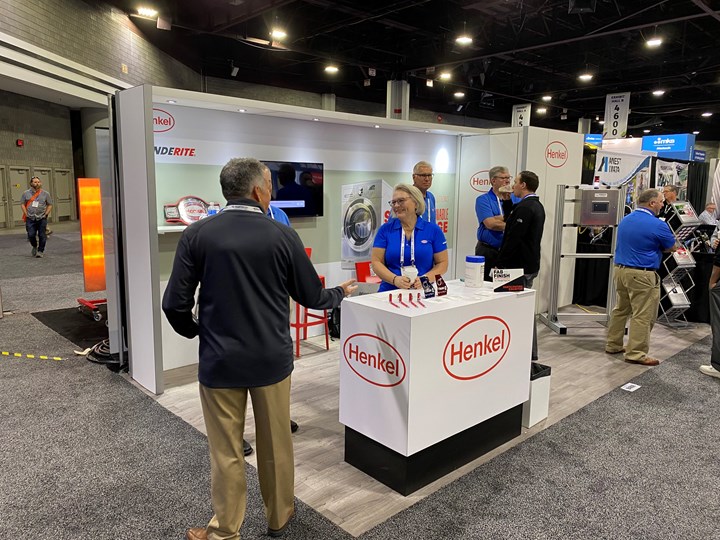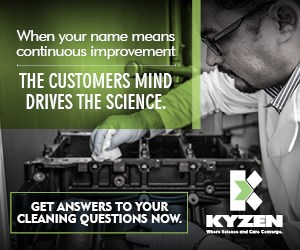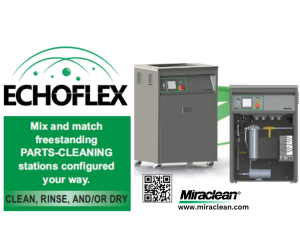Thin-film Process Recognized for Sustainability Contributions
The Suppliers Partnership for the Environment is recognizing Henkel for its Pallumina thin-film process.

Henkel is being recognized with an award from the Suppliers Partnership for the Environment for demonstrating innovation in an advanced manufacturing process leading to significant environmental and economic impact. The award recognizes the use of the Pallumina thin-film process on the 2021 Toyota Tacoma and Tundra.
Metal pretreatment is an essential part of vehicle production as it enables paint adhesion to the vehicle body while also minimizing the chance of corrosion. According to Henkel, more than 4 million vehicles are pretreated annually with its portfolio of thin-film metal pretreatment processes. The Pallumina thin-film process reduces the manufacturing steps of a conventional metal pretreatment process from seven to four. Some noted environmental advancements include the elimination of heavy metal phosphates (such as zinc phosphate, nickel phosphate and manganese phosphate), the reduction of up to a 90% in sludge generation and a reduction in water usage.
The process uses a metal-oxide conversion coating versus a zinc phosphate-based conversion coating, which the company says decreases sludge generation by reducing the need for metal etching and the use of fluoride additives. As a result, the need for regular tank cleanouts is reduced and annual chemical cleanouts are minimized — reducing sludge disposal costs and labor costs.
“Today’s automotive OEMs are looking for solutions that enhance sustainability, while reducing costs, simplifying processes and delivering high performance,” says Cris Naida, Henkel vice president automotive OEM Americas. “Henkel’s thin-film processes deliver on all of these — offering an exceptional solution for paint shop processes.”
Henkel says the Pallumina thin-film process is effective across all major metals and can process up to 100% aluminum, further enabling the use of this lightweight metal. Use of aluminum is expected to double from approximately 13% on passenger cars and trucks today to 26% by 2040, according to the Center for Automotive Research. Aluminum plays an essential role in improving fuel economy standards for internal combustion engine vehicles and offsetting added weight of battery electric vehicles.
The Suppliers Partnership for the Environment represents organizations from across the automotive value chain, including several of the world’s largest automakers and suppliers. The organization works toward a shared vision of an automotive industry with a positive environmental impact.
Henkel | 800-562-8483 | henkel-northamerica.com
Related Content
-
Improving Wastewater Management Efficiency
Don’t find yourself underwater when managing wastewater processes. Follow these steps to improve efficiency and determine the best ROI.
-
Zinc Phosphate: Questions and Answers
Our experts share specific questions about zinc phosphate and pretreatment
-
Alkaline Cleaning Guide
Gregg Sanko, Senior Chemist, Oakite Products, Inc. provides an overview of the alkaline cleaning process.















